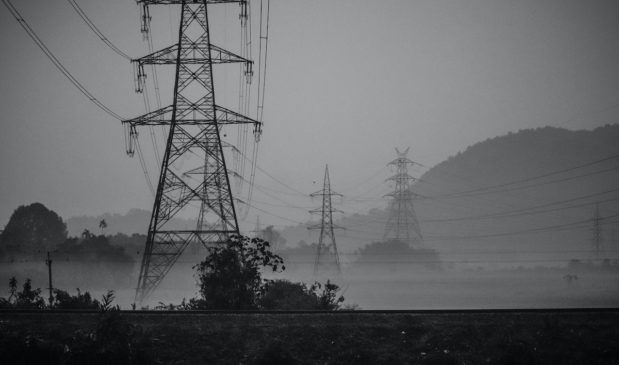When Anshul Dhir got a 400% return on bitcoin in 2016, the Noida-based entrepreneur jumped in joy and decided to enter the world of digital currency. He left his government job and incorporated a startup named Qadcore to provide commercial mining facilities. His parents were baffled: ”Is crypto mining legal? How are you earning money?”
Fast forward to 2020, and “Is crypto mining legal?” is still a live question in India. The industry has been hamstrung by a lack of clarity from regulators and frequent clampdowns on mining operations.
In March 2020, India’s Supreme Court lifted the banking ban that barred banks and other financial institutions from facilitating any service related to virtual currencies. As a result, trading volume at exchanges like WazirX went up by 400%. Dhir’s parents have now developed faith in the crypto ecosystem. But it’s unclear what will happen to the Indian crypto miners after the verdict. Will the government also lift the 2017 ban on importing ASIC machines for mining bitcoin?
The Supreme Court has given a green signal to the banking of cryptocurrencies, but mining itself – a key part of any country’s early-adopting cryptocurrency – is still under the cloud. Just recently, the industry was rocked by rumors of a new government ban. ”It’s risky and bizarre to work in such an environment,” said Dhir.
While Dhir chose to continue mining in India amid the uncertainties, Bengaluru-based Akshay Bajaj, a co-founder of AB Nexus, a financial consultancy firm for cryptocurrency, quit mining when the government banned ASIC imports. ‘‘The latest technology is required for mining, and when the import of machines was banned, we could not buy new ones, and eventually, the mining had to be stopped,” he said. At the same time, profit margins fell in the post-2017 bear market, which led him to focus more on investing rather than mining.
Mining bitcoin is energy intensive. According to an estimate by the Cambridge Bitcoin Electricity Consumption Index, the global activity consumes about 60 terawatt-hours a year (in 2017, the world consumed a total of about 25,000 TWh). Electricity costs typically account for a high percentage of overall mining expenditure.
Power shortages are one reason the government banned ASIC machines, said Sidharth Sogani, CEO of CREBACO Global, a Mumbai-based credit rating and research firm of blockchain. India suffers from a lack of electricity, with millions of people still without reliable supply. He also said the other reason could be the specific integrated circuit of ASIC machines, which is useful only for mining bitcoin and can’t be used for anything else.
Nowadays, GPU mining is the only option left for the Indian miners, but it is not profitable and, even then, the legal status of mining in India is not clear.
The language of existing laws doesn’t help, said Pabitra Mohan Mishra, attorney at Finlaw, a Mumbai consultancy firm. Words like “currency” and “mining” can be construed as printing new notes or mining coins, which is a government prerogative and not for individuals.
”Obviously, printing a note is illegal. However, in India, the law is still not very clear about crypto mining, and that’s the reason why in 2017-18, a few of the miners were imprisoned, and the cases are still going on,” Mishra said.
Mishra advises people not to mine until there are new regulations on cryptocurrency. ”Stay out of crypto mining in India. However, you can trade it.”
Jugaad machines
Dhir, who claims to be among the country’s earliest miners, has struggled to import appropriate mining machines. So he used an Indian jugaad skill (a flexible approach to solve a problem) and manufactured his machine in-house.
”In 2016, we were not getting a motherboard [in India], which is very specific for mining equipment. I went to Bengaluru to buy a very high configuration motherboard, which is used for the medical equipment,” he said.
After the recent Supreme Court verdict, he wanted to buy ASIC machinery, thinking the road must now be clear. But he faced the same problem of importing the equipment.
”Some custom officials allow machinery and some reject it the moment they see the word ‘digital currency.’ ASIC is not coming to India through the proper channels,” he said. Another crypto miner, Shantanu Sharma, said there is a growing black market of mining machinery in India.
The price of mining bitcoin in India varies from state to state. For example, the price of electricity is lower in New Delhi, but the cost of real estate there is skyrocketing. In other states, the price of land is low, but power cuts are a hurdle.
In India, electricity is neither cheap nor expensive as, on average, it is between 10-12 cents per kilowatt-hour. In Russia, it is 0.085 cents/kWh, and in Denmark, it could be 30 cents/kWh.
Dhir is using power generated by solar plants. With some partnerships, Dhir is using the power from solar plants via the grid, and the state government provides a 30% subsidy to domestic consumers who install solar panels. The plants are installed in states like Madhya Pradesh and Himachal Pradesh, as both have a favorable climate and better infrastructure comparatively. He claimed that the solar-derived electricity is half the cost of officially-supplied power, at 0.04 cents/kWh.
Solar isn’t a panacea, though. First, the initial cost of installation is high; second, India’s tropical climate is not favorable for crypto mining, and third, red tape, inevitably, gets in the way. ”If you are using a solar plant for mining, you will have to declare it – and it’s not easy,” Sharma said.
Armenia-bound
Facing unfavorable conditions at home, some Indian miners have decided to set up abroad, with Armenia, in Central Asia, being one hotspot. Dhir is seeking investment from Armenia, the United Arab Emirates and Tunisia, and claims the government in Yerevan has a better understanding of crypto mining than the one in New Delhi. Also, Indian citizens don’t need a pre-travel visa.
Sharma has tied up with a government recognized mining company ECOS.am in Armenia, which provides cloud mining services.
”Armenia is a free economic zone country where one can easily set up a company, tax and property rules are easier and the period of a moratorium is 25 years,” said Sharma, who has decided to work outside India only.
Sharma is educating people about crypto with a new YouTube talk show, which he says is India’s first. He said increasing demand for digital currencies has allowed his Gurugram-based startup Inblox to hire seven people in the past month, even in the pandemic.
Bajaj, of AB Nexus, is not planning to come back to mining as it is capital intensive and focusing on investment strategies and portfolio management for clients in Bengaluru.
The Indian crypto industry hopes India’s central bank, the RBI, can collaborate with the Security Exchange Board of India, the equivalent of the U.S. Securities and Exchange Commission, to hammer out some clear guidelines. At the moment, the government seems okay with using blockchain for the payment system, as it may improve efficiency, but for tokens or cryptocurrencies. Dhir wants the government to break with this ”Blockchain is good, cryptocurrency is bad” approach.
Lawmakers such as Subramanian Swamy, who represents the ruling Bharatiya Janata Party (BJP), have been advocating cryptocurrency, saying it’s “inevitable” that India will more fully embrace crypto.
However, attorney Mishra said India is still afraid of ”the scams and frauds” associated with the crypto sector, adding, ”I am 100% sure that the government would ban private currencies, ICOs and personal tokenizations.”
The recent news of Google and Facebook investing in the Indian market for digitalization has given hope to crypto miners as well. Last week, in a webinar, Subhash Chandra Garg, a former Finance Secretary who drafted the bill to ban cryptocurrency in India, proposed regulating crypto as a commodity. The organizers of webinar CREBACO Global and Khaitan & Co., a law firm, are now building a new framework about digital currencies in India, and it will be submitted in a month.
‘‘We have worked with the governments of Singapore, Malaysia, Malta, Thailand, Vietnam and UAE about the regulations and policy framework. With that experience, we are now focusing on the regulations in India,’’ said Sogani, from CREBACO Global.
Dhir said a country of 600 million internet users could be a crypto industry success story. ”The conservative approach of a blanket ban would be like throwing a baby out of the bathwater,” he said.
”We will lose trillions due to reluctance of the government, and that means we are isolating a leading software country from innovative technology,” he said.





Thanks for sharing us!